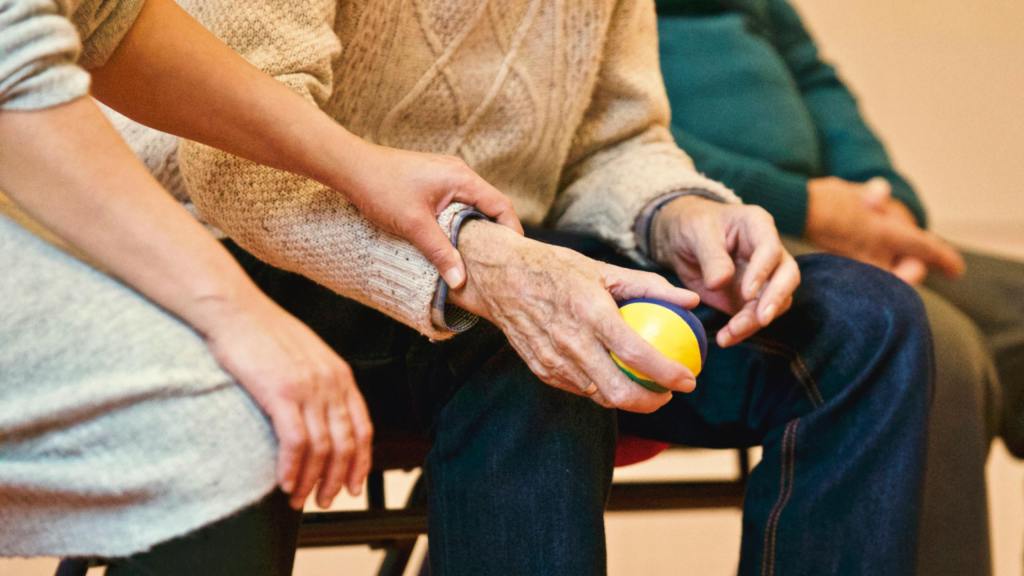
Memories in a song
“I’m never gonna know what you go through All the things I say or do All the hurt and all the pain One thing selfishly remains
I’m not gonna miss you I’m not gonna miss you”
-Glen Campbell, “I’m Not Gonna Miss You”
Growing up, I would watch my mom and my Great Aunt Dorothy sit at our kitchen table for hours. They gossiped about family, debated politics, discussed the weather, and reminisced about Dorothy’s childhood memories and her time spent as a young woman working in the Marines and Army throughout the 1940’s, long before my mom was born. They bonded over music, specifically Elvis, The Beatles and a peculiar song called “Freckles” by Nora Bayes. It was her favorite song, and one her father loved to sing to her as a child. This was their ritual, their safe space. Every holiday involved Dorothy. At least once a month my mom made the hour-long drive to her home to take Dorothy out to lunch. In between visits, you could count on Dorothy to call my mom every few weeks. These memories are ingrained in my brain, and I know my mom feels the same. They are something my we cherish and will never forget. Now, though, visiting Dorothy makes my mom nervous—mostly because it makes my Great Aunt Dorothy nervous. Several years ago, Dorothy was diagnosed with Alzheimer’s disease. My mom is nervous that Dorothy won’t remember her. Dorothy is nervous because there is a stranger in her home. A story like ours isn’t uncommon. The Alzheimer’s Association reports that 1 in 3 seniors die with Alzheimer’s disease or another dementia, while 16 million caregivers, like my family, care for them. Alzheimer’s disease isn’t just devastating for the person affected, but for the family as well. After Dorothy’s diagnosis, my mom watched as Dorothy’s memory began to fade. Although she would eventually forget nearly everything and everyone she once knew, Dorothy could still recite “Freckles” word for word. The Magic of Music Something a person with Alzheimer’s tends to remember, regardless of age or faded memory, is music. The melodies from different times in their lives flood them with emotion and bring them back to times once forgotten. Music can also help those grieving, even if their loved one is still here. Glen Campbell famously wrote the song, “I’m Not Gonna Miss You” after his diagnosis of Alzheimer’s. Ed Sheeran wrote the song “Afire Love” for his late grandfather who battled Alzheimer’s. And there are many more. We remember those who cannot, and thank those who can through song.Glen Campbell -I’m Not Gonna Miss You
Ed Sheeran – Afire Love
Kenny Chesney – While He Still Knows Who I am
Carrie Underwood – Forever Changed
Nora Bayes – Freckles, for Dorthy
More insights like this:
-

Delirium vs. Dementia: Causes, Symptoms, Treatments, and Preventative Measures
Read more: Delirium vs. Dementia: Causes, Symptoms, Treatments, and Preventative Measures5 Key Things Family Caregivers Need to Know About Delirium and Dementia Onset and Course Are Key Clues That Caregivers Should Watch Closely Delirium develops suddenly (hours or days) and often fluctuates; dementia progresses gradually over months or years. Acute changes in thinking or attention should trigger urgent medical evaluation. Delirium and Dementia…
-

What Caregivers Should Know About Early-Onset Alzheimer’s
Read more: What Caregivers Should Know About Early-Onset Alzheimer’sSymptoms, Stigma, Diagnosis, and Treatment Early-onset Alzheimer’s disease, also known as younger-onset, is the development of Alzheimer’s symptoms between the ages of 30 and 65. A diagnosis is relatively rare at a younger age, and while over 6 million people in the United States are living with Alzheimer’s disease, the true prevalence of early-onset is uncertain.…
-

15 Tips on Transitioning a Loved One to Memory, Dementia, or Alzheimer’s Care
Read more: 15 Tips on Transitioning a Loved One to Memory, Dementia, or Alzheimer’s CareAs a part of your journey caring for someone with Alzheimer’s or another form of dementia, there may come a time when the effects of the disease become too much for a caregiver to handle, and one must seek alternative care options. When deciding the right time to transition your loved one to…